Iran's full SCO membership, potential BRICS accession will counter unilateralism, sanctions: FM
Iran’s foreign minister says the country’s full membership in the Shanghai Cooperation Organization (SCO) and potential accession to the BRICS group of emerging economies will promote multilateralism and counter unilateral policies, including sanctions.
In a televised interview on Tuesday, Hossein Amir-Abdollahian said Iran’s full membership in the SCO was among the achievements of the Raeisi administration’s foreign policy and will improve people’s livelihood.
At the end of the 23rd virtual summit of the SCO Council of Heads of States on July 4, Iran gained full membership of the world’s largest regional organization in terms of geographic scope and population. Iran’s national flag was raised at the bloc’s Secretariat compound in Beijing on July 5.
Iran and the organization started a formal process for Tehran’s accession to the bloc in March 2022. In September of the same year, Iran signed a memorandum of commitment to join the SCO. A month later, the Iranian parliament approved the country’s accession to the organization.
Amir-Abdollahian pointed to the outcomes of Iran’s accession to the SCO and said Iran will enjoy all the facilities available to the Shanghai Cooperation Organization member states in the economic and commercial domains.
The chief Iranian diplomat, however, emphasized that the SCO is not just an organization that focuses only on economic issues, but it also includes cooperation in the fields of security, culture, military, anti-terror fight, science and technology.
Pointing to Iran’s potential accession to the BRICS, Amir-Abdollahian said Iranian President Ebrahim Raeisi has been officially invited to take part in the powerful bloc’s 15th summit in South Africa from 22–24 August 2023.
He added that Iran’s potential membership in the five-state bloc would provide the country with an opportunity to make use of great capacities from Africa to Asia, Latin America and other countries.
BRICS is comprised of Brazil, Russia, India, China, and South Africa. The group’s members host around half of the world’s population besides representing one-fifth of the global economy.
Iran is among more than a dozen countries that seek membership in the bloc and has submitted a formal application to join the body. The Islamic Republic has described its objectives as in alignment with those of the BRICS countries.
“The world today is not a world of unilateralism. A new international order is shaping in the world. One of the features of this new order is the countries’ focus and attempts to move from unilateralism to multilateralism,” the Iranian foreign minister said.
‘Nothing can hinder development of Iran-Egypt cooperation’
Amir-Abdollahian also pointed to numerous commonalities between Iran and Egypt, saying the two countries are drawing up plans to improve relations.
“We set no limitation to the expansion of all-out cooperation with Egypt,” he stated.
He then pointed out that both sides have already sent their ambassadors to their respective capitals and started security talks.
Egypt severed its diplomatic relations with Iran in 1980 after it welcomed the deposed Pahlavi ruler of Iran and also recognized the apartheid Israeli regime.
Iran-Saudi detente to secure mutual interests: Amir-Abdollahian
Referring to the opening of a new chapter in Iran-Saudi Arabia relations, Amir-Abdollahian said the Saudi rulers have come to the conclusion that ties between the two countries should be restored based on neighborliness and mutual respect.
Restoration of ties between Tehran and Riyadh would secure mutual interests and result in positive outcomes for the entire region, he added.
He noted that Iran and Saudi Arabia have different views but share a stance on some issues.
The top Iranian diplomat dismissed the notion that Tehran and Riyadh have reached just an economic agreement, explaining that the two sides agreed to improve mutual relations and investment through sustainable economic cooperation despite different political views in some areas.
Following several days of intensive negotiations in Beijing, Iran and Saudi Arabia agreed on March 10 to resume their diplomatic ties and reopen their embassies within two months.
In a joint statement after signing the agreement, Tehran and Riyadh highlighted the need to respect each others’ national sovereignty and refrain from interfering in the internal affairs of one another.
They also agreed to implement a security cooperation agreement signed in April 2001 and another accord reached in May 1998 to boost economic, commercial, investment, technical, scientific, cultural, sports, and youth affairs cooperation.
‘Iran will never cross red lines in talks with US’
Elsewhere in his wide-ranging interview, the minister said Iran would continue the path of negotiations with the United States and European countries but would never cross its red lines.
Amir-Abdollahian added that Iran is making efforts to tackle the impacts of unilateral US sanctions.
Despite the sanctions, he noted, Iran succeeded in increasing the value of its trade exchanges with its neighbors to more than $90 billion.
Tehran has also raised its economic exchanges with European countries in spite of certain political challenges, he said.
Amir-Abdollahian added that Iran has maintained its ties with Britain, Germany and France – the three European parties to the 2015 nuclear deal – but argued that Europe is not confined only to these three countries.
“There are other large sectors in Europe that we interact with without any challenge,” the Iranian minister said.
FM reiterates call for inclusive government in Afghanistan
Amir-Abdollahian also said any development in Afghanistan can have impacts on Iran’s security, given 900 kilometers of common border.
“Any instability in Afghanistan has a direct impact on our border areas,” he said, describing the massive influx of Afghan refugees into Iran as one of the Islamic Republic’s “serious” challenges.
He warned of the spread of terrorism in Afghanistan and said, “We have explicitly announced that no group in Afghanistan has been able so far to run a stable political system without the participation of all ethnic groups. Therefore the formation of an inclusive government is a necessity.”
Iran does not recognize the Taliban in the absence of an inclusive Afghan government, the minister asserted.
‘Iran’s choices not limited to Russia, China’
Amir-Abdollahian also reiterated Tehran’s firm determination to safeguard the country’s national interests and independence following a joint statement issued last week by the Persian Gulf Cooperation Council (GCC) and Russia that challenged Iran’s sovereignty over the three Persian Gulf islands of Abu Musa, the Greater and Lesser Tunbs.
The minister said Iran would maintain its relations with countries while pursuing its “Look to Asia” policy, but hastened to add that the Islamic Republic “will never allow Russia or China to think that they are our only choices.”
Iran interacts with Russia and China based on its own interests and would never let them harm the Islamic Republic’s independence, national sovereignty and territorial integrity, Amir-Abdollahian said.
In their statement, the GCC and Russian ministers said the issue of the three Persian Gulf islands should be settled through bilateral negotiations or the International Court of Justice, in accordance with the rules of international law and the United Nations Charter.
Addressing a joint press conference with his Omani counterpart Sayyid Badr Albusaidi in Tehran on Monday, the Iranian foreign minister said Tehran will never tolerate any interference when it comes to its territorial integrity.
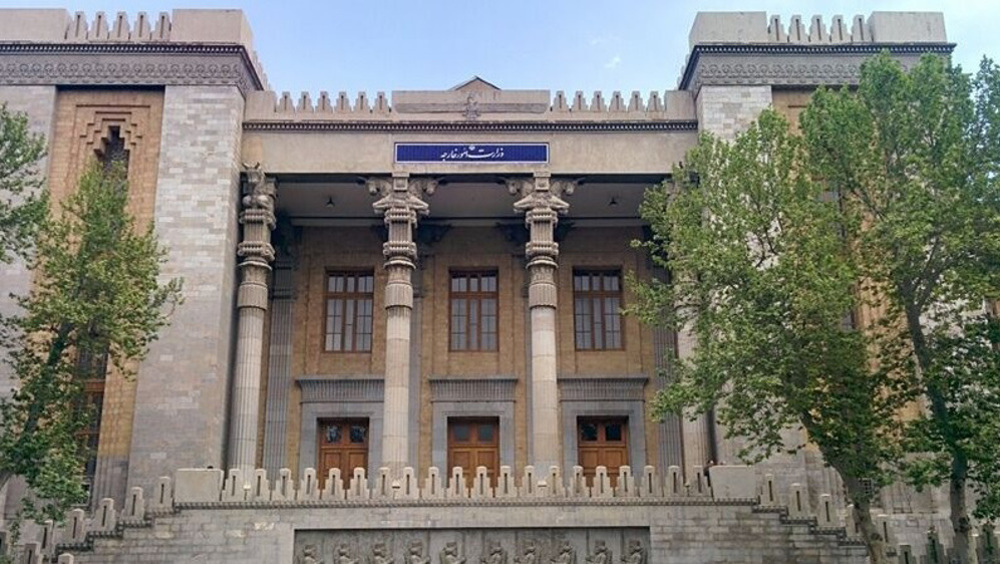
Iran summons Polish envoy over 'baseless, biased' drone claims
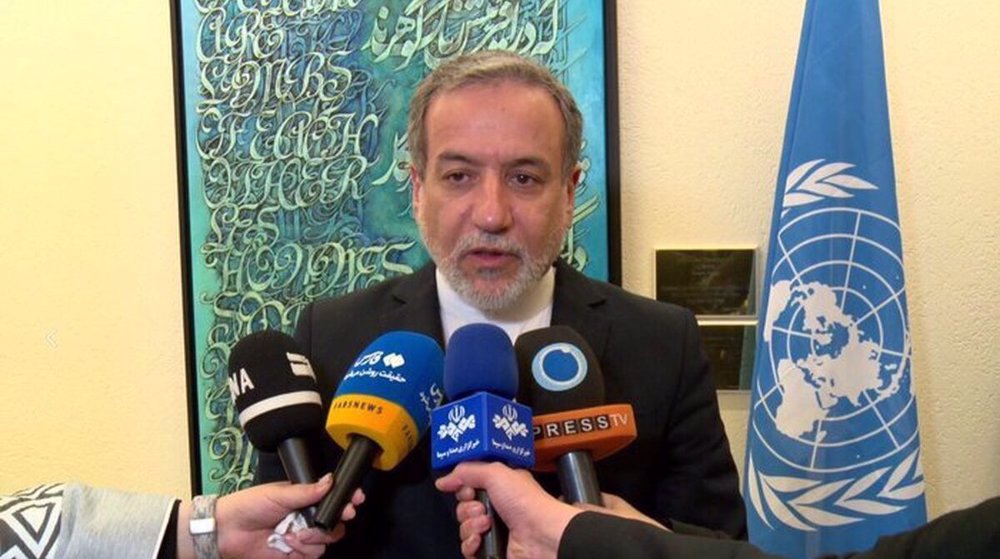
‘Misguided policies’: Araghchi says unjust sanctions inflict suffering on innocent Iranians
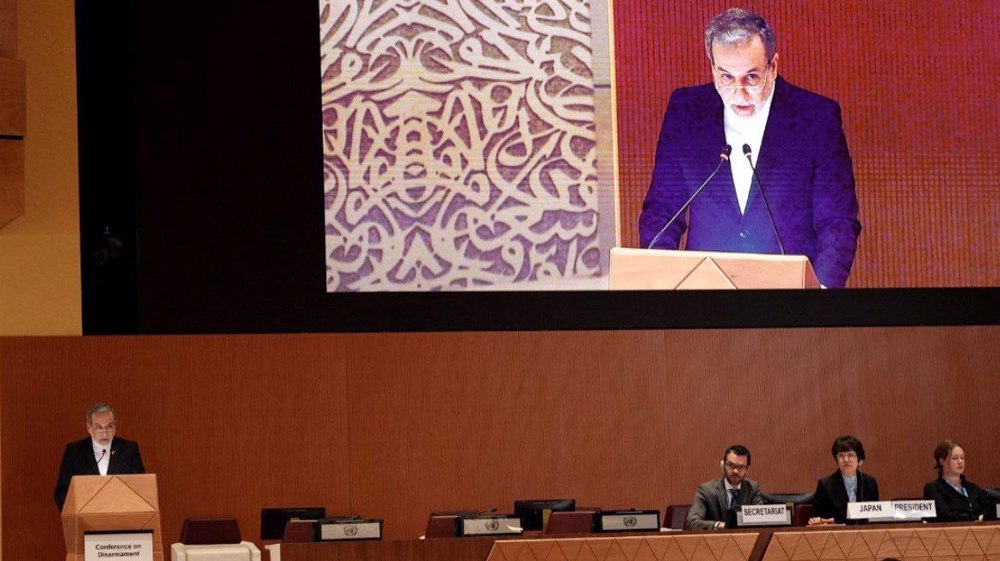
‘Grave threat’: Iran says Israel’s nukes endangering world, blasts US nuclear spending spree
Australian senator smeared by anti-Iran groups for saying Iranian women ‘have a voice’
Palestinian man dies in Israeli prison as Foreign Ministry urges intl. probe into regime’s crimes
Putin says not opposed to Europeans’ involvement in Ukraine talks
VIDEO | Iranian Kurdish protesters demand European action against PKK, PJAK terror
VIDEO | Israel expands offensive in northern West Bank, deploys tanks to Jenin
VIDEO | Spaniards fill streets of Cádiz in solidarity with Palestine
VIDEO | ‘Genocidal war left al-Shati camp in ruins’
VIDEO | Palestinian female journalists in West Bank face Israeli threats


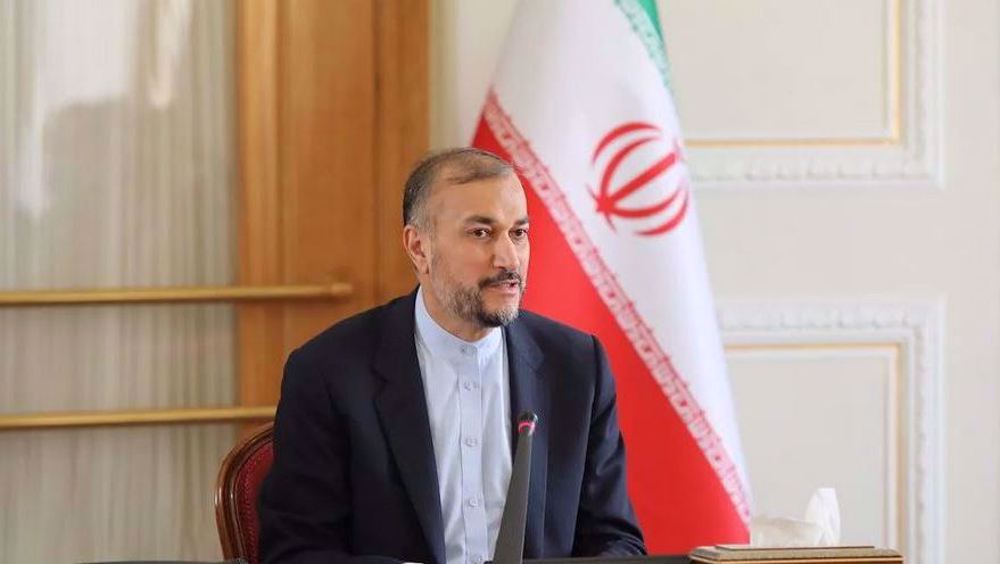
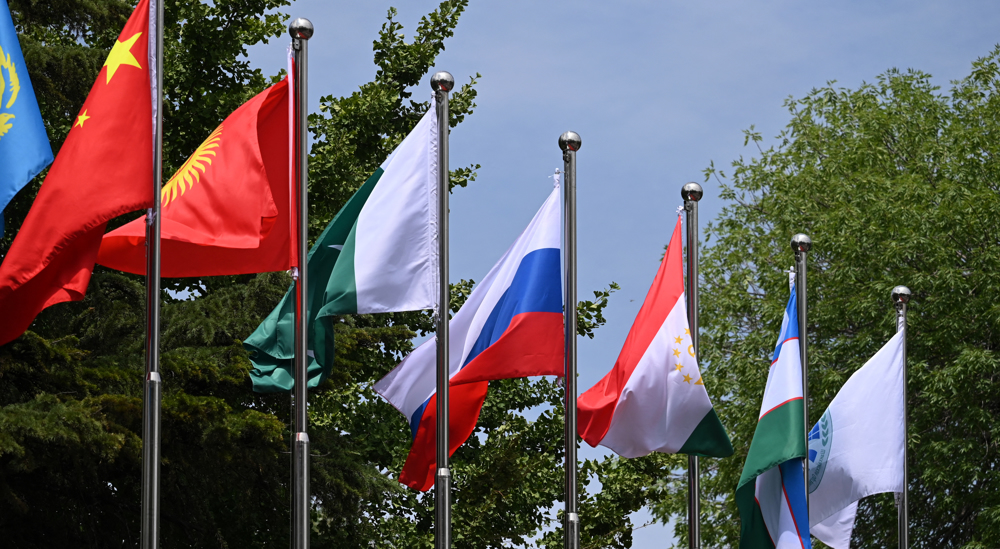
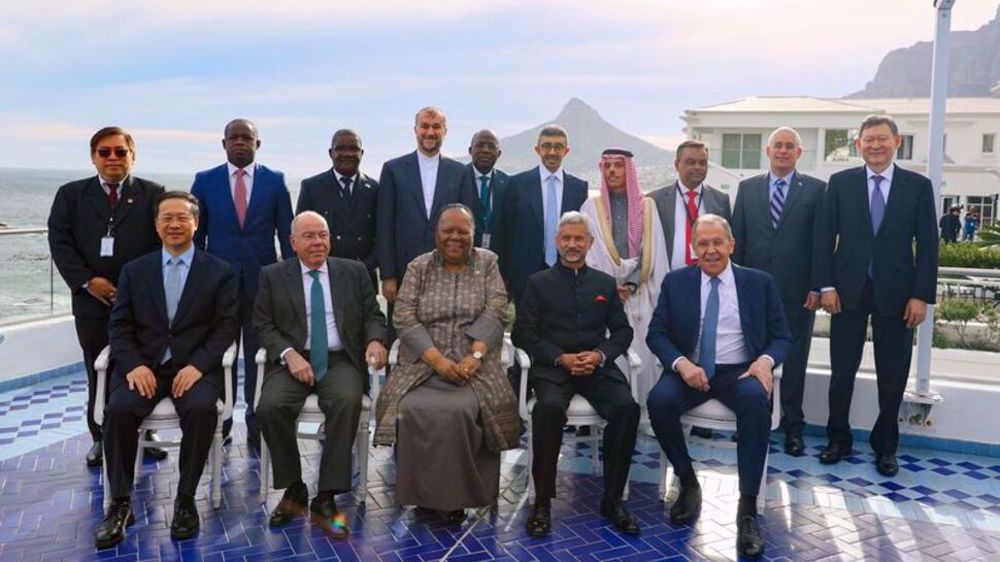





 This makes it easy to access the Press TV website
This makes it easy to access the Press TV website